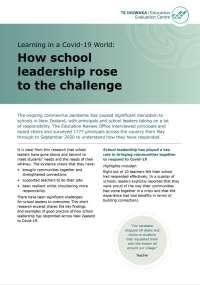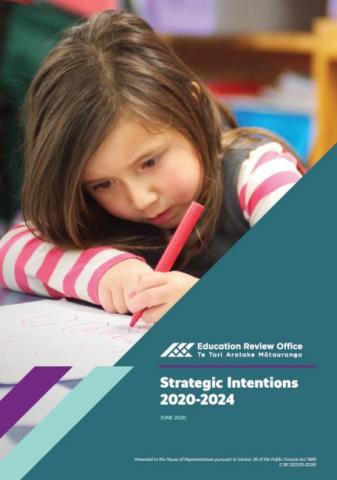School Leadership That Works
Published: 07 Nov 2016
This evaluation report illustrates the leadership domain of ERO’s School Evaluation Indicators in practice by:
- Audience:
- Māori-medium
- Parents
- Schools
- Content type:
- Research
- Topics:
- School leaders
- Leadership










